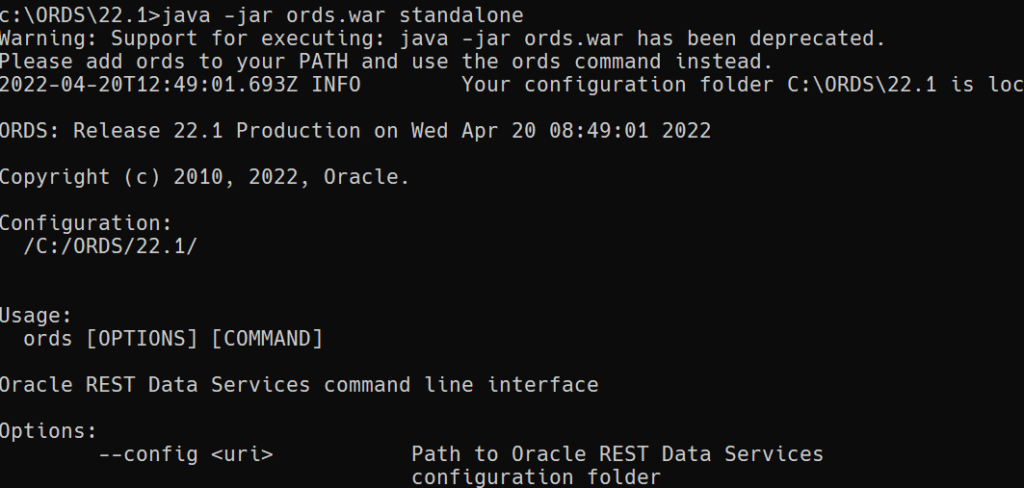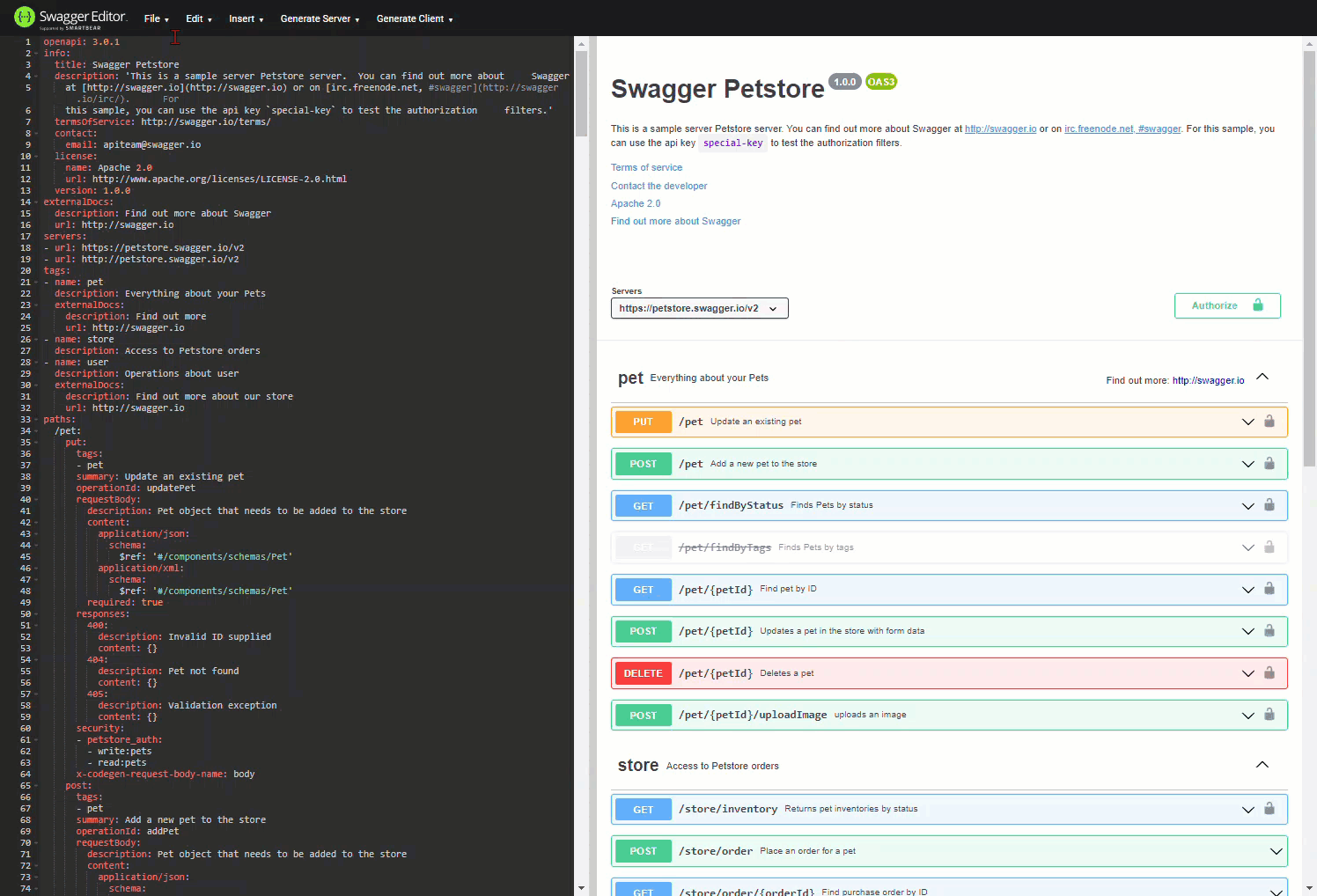Oracle REST Data Services version 22.1: Read the README!
Usually when a new version of your favorite software comes out, you download it, and give it a go. Exactly like that, in that order.
But, for version 22.1 of ORDS, I recommend you break that habit.
However, I know you will ignore this advice and go to start/upgrade ORDS like you’ve always done, a la
java -jar ords.war standalone

So what’s the new command to run, Jeff? (Yes, I hear your voices in my head) I’m not going to tell you the new command right now, because I want you to read the README and the Docs.
I guess you can still cheat and see the slides below for some hints. I try to be firm, but not mean!
So, I will now do as Inigo Montoya might say, let me sum up.
What’s new & what you need to know, in a nutshell
- The standard java command line interface is gone
- There’s now a bin/ords program/shell script available to working with ORDS
- The configdir is no longer burned into the WAR file
- You’ll need to set a OS environment var or use a -config flag to tell ORDS where it can find it’s configuration files
- The way we store ORDS configuration files is completely different now – you’ll be migrating your old configdir to a new one
- We no longer support Oracle Java 8
- We now support both Oracle Java 11 and 17
- ORDS no longer supports APEX based REST APIs – you MUST migrate those to the ORDS side of the universe (btw, APEX no longer supports them as well)
I’ll have deep-dive details on most of these points going forward over the next few days, weeks, and months, but in the meantime, I put these slides together to give you an idea what this all really means.
What about SQL Developer Web?
Yes, HUGE updates there! I’ll be talking about those new features as well. A dedicated editing environment for PL/SQL, create/edit/delete scheduler jobs, schedules, notifications, importing OpenAPI (2 or 3) specs as new REST Modules, ability to open/save local files from the worksheet and procedure editor, and a new OmniSearch feature for finding/opening things in your database.
Search quick look –

OpenAPI Spec Import – quick demo

PLSQL Editor quick look –

No comments:
Post a Comment